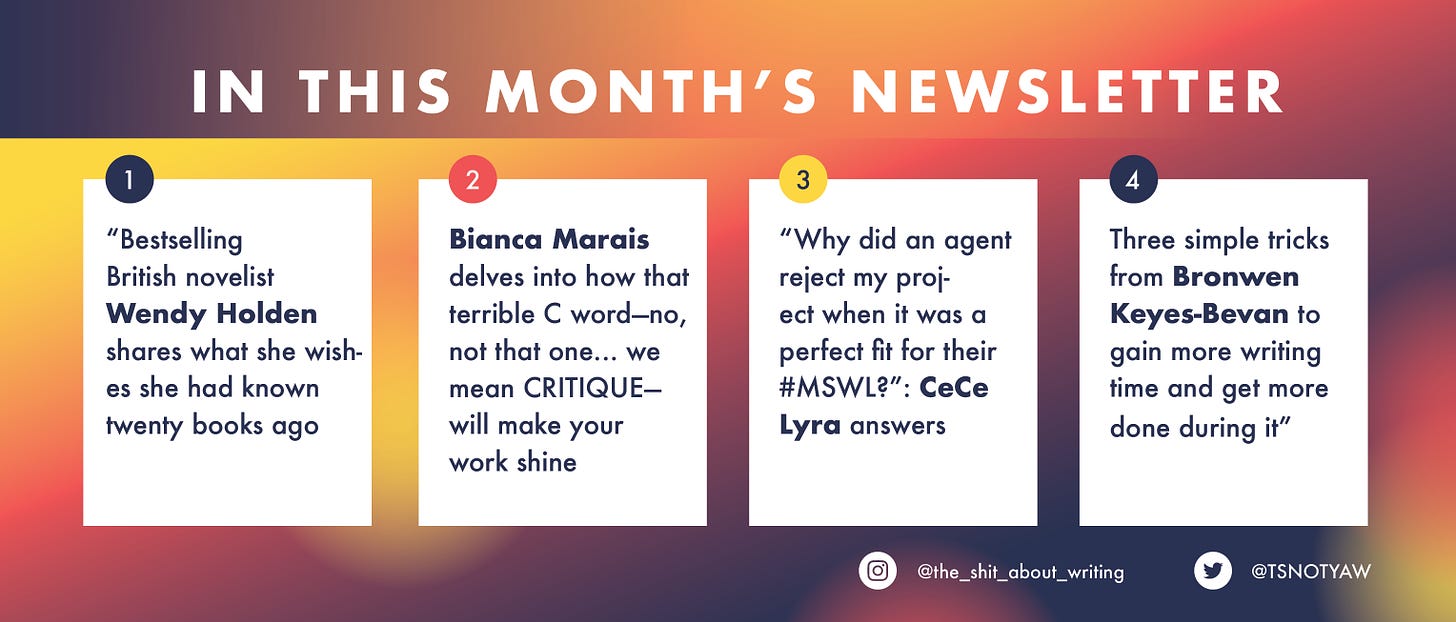✨ Wendy Holden on what she’s learned upon publishing her twentieth book; the lowdown on embracing critique; and why that literary agent passed on your project✨
✨ Plus, three simple ways to find more time to write! ✨
☺️ Hello friends! And welcome to The Shit No One Tells You About Writing’s latest issue! ☺️
We’d like to extend a heartfelt thank you to those of you who took the time to fill in our reader survey. We are always working hard to improve this newsletter by learning how better to support you on your writing journey. Your feedback provided us with lots of fo…
Keep reading with a 7-day free trial
Subscribe to The Shit No One Tells You About Writing to keep reading this post and get 7 days of free access to the full post archives.




